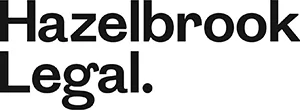From 1 July 2020 Australia's four largest banks will be required to provide access to customer and account data for credit and debit cards, deposit accounts and transaction accounts. By November, they will have to make available information for all other accounts, including personal loans and mortgages. By the end of July 2021 all banks in Australia will be required to provide access to this information to accredited recipients upon request from the customer.
While this increase in consumer data rights will undoubtedly benefit everyday Australians by enabling easier switching between banking providers, those that stand to gain the most from these changes include neobanks and fintech startups, which should also be aware of the increased obligations and liabilities that these changes impose.
WHAT IS OPEN BANKING?
Open banking allows customers access and control over the information banks stored on their finances. Currently, it can be incredibly difficult and time consuming to access this data, notably because of the transaction history and identification document requirements which make switching banks so challenging. Open banking allows for you to request that this information be shared by your bank on your behalf with an authorized third party.
IMPACT ON CONSUMERS
Australians very rarely switch banks. Research indicates that even if customers are aware of a better deal, they rarely have the motivation to switch because the process is so difficult. Open banking will make this process easier by increasing consumer data rights.
Consumers will have increased access and control over their data.
With the increased ease of changing banks, other smaller providers and challengers to traditional banks offering more attractive products may be able to gain traction in the market.
In particular, customers can now direct banks to feed their data through third-party applications, including financial management and budgetary applications.
Some consumer groups have registered privacy concerns with how the data is to be handled, in particular that banks may share the information without consent. However, it is important to note that this is an opt-in scheme and the banks cannot share information without direction from the customer. Additionally, the data held by financial institutions is regulated by strict security standards, and information shared on request may only be disclosed to accredited data recipients.
IMPACT ON NEOBANKS, FINTECH AND STARTUPS
Fintech companies have traditionally struggled with mainstream customer awareness but open banking may hasten a leveling of the playing field by reducing the barriers of switching.
However, the changes significantly increase obligations for market participants like banks, neobanks, fintech, payment providers and other start-ups. These companies will be required to release information to another entity on request from the consumer whilst maintaining consumer privacy. Consequently, companies holding this kind of sensitive consumer data face the cost of accessing and then transferring the information, ensuring that the requested recipient is accredited, and protecting the data as it travels to that recipient.
Furthermore, becoming an accredited recipient may be costly. The accreditation process through the ACCC has been called 'cumbersome' and 'laborious', and costs up to $100,000. There may be further associated costs for those after accreditation, with companies subject to rigorous security and privacy protections due to the highly sensitive nature of the data. Although a focus on robust security benefits consumers, it imposes high costs and liability on those companies handling the information.
HOW TRANSFORMATIVE IS OPEN BANKING?
Despite potential benefits, the experience over the past year in the UK which switched to Open Banking in 2018, indicates companies should not expect to see drastic changes quickly. In the UK, open banking is widely considered to still be 'underutilized'. Furthermore, preliminary surveys in Australia have indicated that awareness of the changes and their possible implications is incredibly low. Yet although the impact of open banking is unlikely to be immediate, the potential for customers and challenges to the big 4 banks to profit from the changes is great across the longer-term, regardless of their increased obligations.
KEY TAKEAWAYS
The control held by Australia's four largest banks may become weakened with the introduction of open banking, which makes switching banks and accessing customer data easier. This increase in consumer data rights imposes greater obligations on providers: information is their responsibility to pass on to elected third parties on request and ensuring that the information is kept private and away from unauthorized third parties.
Ultimately, however, there is opportunity both for customers to get better deals on their banking and for smaller companies to gain market share.
Companies seeking to be accredited as data recipients should ensure they are prepared by July 2020 when open banking for the major banks is launched nationwide. Hazelbrook Legal can assist with this process.
The content of this article is intended to provide a general guide to the subject matter. Specialist advice should be sought about your specific circumstances.


